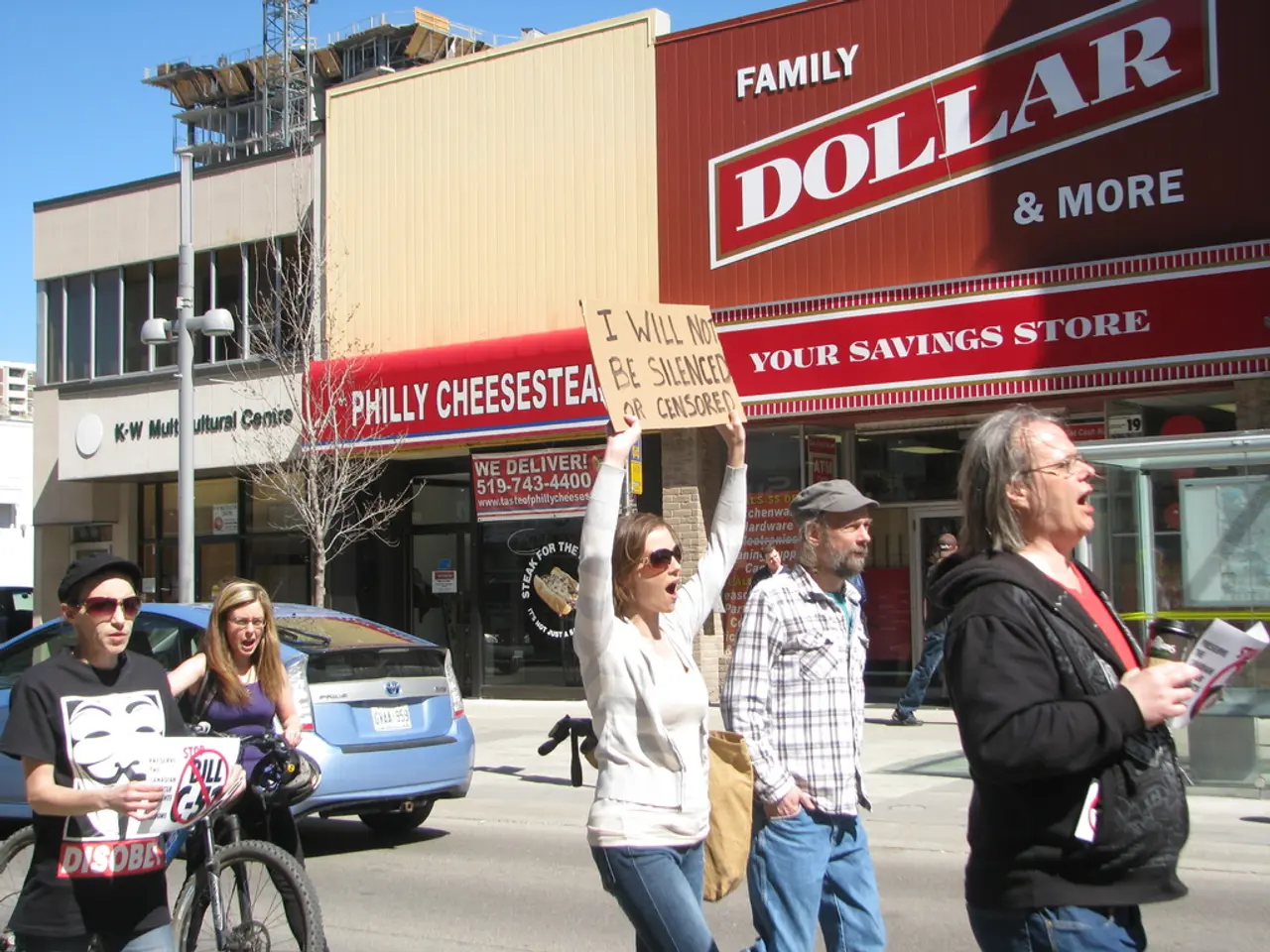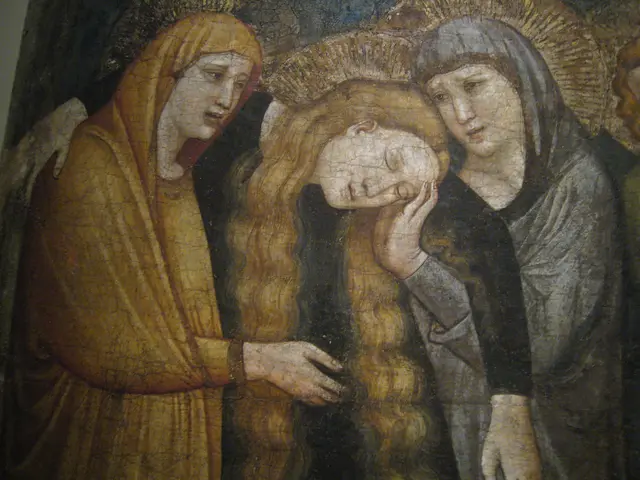"Comedians grapple with moral dilemma over employing their comedic material to attack Israel's military actions in Gaza"
In the world of comedy, performers often walk a tightrope between expressing their personal views and avoiding controversy. This is particularly true for comedians of Muslim heritage, who find themselves navigating complex expectations regarding identity and politics, especially when it comes to the Israel-Gaza conflict.
Salman Malik, a performer from Yorkshire, has organised three comedy fundraisers for Gaza over the past year. However, he has faced online backlash as a result. His counterpart, Irish-Palestinian performer Nadia Said, has never disclosed her background for fear of affecting future opportunities. She has experienced the gamut of promoter and audience responses, but the potential consequences of speaking out are too great.
Comedians often risk social media harassment, accusations of bias, or being pigeonholed into only discussing conflict-related material. They might also experience pressure to conform to particular political narratives or risk losing audience support if they address such topics controversially or humorously. This leads some comedians to either avoid the topic or handle it very carefully to sustain their careers and audience engagement.
The Halal Fried Comics, a comedy night founded in April 2024 to provide spaces for Muslim acts to showcase their material to a largely South Asian audience, has also faced tensions over discussing certain subjects, including the Israel-Gaza conflict. The jokes at Halal Fried Comics riff through tales of family trauma, racism, and politics, but the topic of Israel's war on Gaza has been conspicuously absent.
Egyptian-American comic Bassem Youssef has faced accusations of antisemitism for consistently addressing the war in Gaza. Similarly, Palestinian-American comic Maysoon Zayid has had several corporate gigs cancelled after addressing American political responses to the Gaza conflict.
The increasing harshness of England's protest laws has raised concerns about a wider silencing of comedians, with people being charged with hate crimes for holding placards or using certain terms. This has led some performers to be cautious about speaking about Israel-Gaza, fearing potential backlash and loss of bookings.
However, there are comedians who are pushing boundaries and addressing these sensitive topics. The Halalians, a comedy show focusing on hijab in the workplace, and the seven up and coming Muslim comedians mentioned in an article are examples of this. Shabaz Ali, a Muslim comedian with 1.4 million followers, believes he is not given the same opportunities as his white counterparts.
In the Edinburgh Festival Fringe, five comedy shows are worth looking out for. Despite the challenges, comedy continues to provide a platform for artists to express their views and engage audiences in thought-provoking discussions.
Meanwhile, the debate around Islamophobia, the potential for 2024 riots to be repeated, and the need for places of worship not to resemble fortresses are topics that are being discussed in opinion pieces.
In the fashion world, RWRK Studio, an upcycling brand that turns discarded towels into street style staples, is making waves.
As we celebrate Yorkshire Day, it's important to remember the challenges faced by comedians and artists who dare to speak out on sensitive topics. Their courage and resilience serve as a reminder of the power of comedy to challenge, engage, and inspire.
[1] Source: Various articles and interviews on the subject of Muslim comedians and the Israel-Gaza conflict.
- Comedians, such as Salman Malik and Shabaz Ali, risks facing social media harassment, accusations of bias, or being pigeonholed into discussing only conflict-related material when addressing the Israel-Gaza conflict, as seen with Egyptian-American comic Bassem Youssef and Palestinian-American comic Maysoon Zayid.
- Despite the challenges and potential consequences, comedy serves as a platform for artists to express their views on sensitive topics and engage audiences in thought-provoking discussions, as demonstrated by The Halalians, the seven up and coming Muslim comedians, and the comedians performing in the Edinburgh Festival Fringe.






